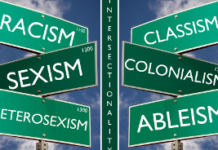Sunday has always been the day when I get up early in the morning, read some journal articles on Critical Race Theory, or anything else that interests me, and then do my own writing on the topic. Critical Race Theory, or even just Critical Theory itself, is something I am passionate about because I understand its connection to Marxism and how it is being used as a tool of social transformation. It is amazing what you can find on the internet these days. We truly are living at a time when information is at the tips of everyone’s fingers. For example, I read an article today called Towards a Critical Theory of Education, written by Douglas Kellner in 1991. Who is Douglas Kellner and why does it matter? Kellner is described as a “third-generation” critical theorist carrying on the tradition of the Frankfurt School in modern education. He currently teaches at UCLA. Why does it matter? Because he calls for a Critical Theory that expands beyond the original intent of the Frankfurt School and allows educators to focus on a more radical critique of modern society. Education, Kellner writes, should focus on the radical pragmatist approach advocated by John Dewey, while also focusing on “poststructuralism, and various critical theories of gender, race, class, and society while criticizing obsolete idealist, elitist and antidemocratic aspects of traditional concepts of education.” Gee, I wonder why any of that would matter? John Dewey wrote in Democracy and Education that schooling should focus on eliminating aspects of the environment that are considered undesirable for the purpose of creating a better society. He wrote that in the 1920s. I guess that really doesn’t matter. I mean, it isn’t like Dewey is considered the father of modern education or anything. What is considered undesirable? Individualism, patriotism, competitiveness, capitalism, and meritocracy. You know, all the stuff they are eliminating from school today, but I digress. I mean understanding what is driving modern education certainly wouldn’t help us develop a strategy to fight what is going on. It is much better to be reactionary and play catch up.
I have been writing now for over ten years. Motivated to learn about Marxism and CRT because I was explicitly told in a university that I wasn’t fit for a particular field of work because of my opposition to the white privilege indoctrination, I literally immersed myself in the topic. My education was primarily in social work, which of course is a haven for radical leftists who push racial agendas and leftist doctrine. After graduating with a bachelor’s degree I went to the Master’s program where I was denied the degree three days before graduation despite having a 3.6 GPA. It was purely political. A professor in the undergrad program literally told me that it was her job as a social work gatekeeper to weed out those who don’t believe in social justice. This is what kickstarted my writing endeavors. My original website, a google blog page, spans over a period of ten years. It is interesting to go back to my earliest articles and see how my writing has evolved. In 2019 I attended Liberty University’s Master of Professional Writing program with the explicit purpose of learning how to write more concisely and professionally in defense of my country. I made a vow to myself that I wouldn’t be like other websites that do little more than repeat the mainstream narrative over and over again. I would write nothing without having legitimate, academic sources to back up what I am saying. In most situations, I am not even making an argument, I am simply trying to draw attention to what other people are saying. For example, in my article entitled CRT of Critical Theories on Race? Understanding the Difference, I highlight the positions of a Critical Race scholar who argues in his article, Will the Real CRT Please Stand Up? The Danger of Philosophical Contributions to CRT, that there is a definite difference between what is being taught in elementary school and the real CRT. Referring to elementary school lessons of race as Critical Theories on race, he suggests that these lessons are still being taught within the confines of the white supremacist system, by white liberals no less, and that they revolve more around the idea of eliminating racism by forcing people to reflect on their own racist attitudes. This is something that as a student in the social work program I had to do in my white privilege position paper. The following paragraph is from my article citing the author-
“Curry (2009) suggests that there is a definite relationship between Critical Theories of Race and CRT, however, the former focuses more on developing an understanding of race from a theoretical perspective. Critical Race Theory, on the other hand, “acknowledges the need for radical political and legal activism against whites and whiteness” (Curry, 2009). It is argued by Curry (2009) that CRT was co-opted by a philosophical movement that believed white people could be conditioned to self-reflect on their own racist attitudes, and by integrating Critical philosophies of race into the white consciousness, racism could be solved. White liberals who are attaching the label of CRT to their work, are still dominating the racial discourse, and by defining the terms in which race and racism are understood, are still contributing to the white supremacist system. The real Critical Race Theory is a challenge to the very ideals of western civilization without apology. Curry (2009) argues that CRT scholars are not interested in philosophical contributions which attempt to re-socialize white people into acknowledging their privilege but deconstruct the very idea of “whiteness,” which is protected in American law. Critical Race Theory does not attempt to create a peaceful, multicultural world. Rather, its foundations are built on the belief that racism is a normal, everyday part of American society, and the ideals put forth in the civil rights movement have failed. CRT rejects the notion that racism can be solved by focusing on racial ignorance. Instead, the scholarship driving CRT is based on the idea that Black and White people cannot peacefully coexist, and a “constructive engagement with whites” will accomplish nothing because we are operating from the perspective of maintaining our own dominance.”
Gee, the real CRT calls for radical legal and political activism against whiteness. I don’t see why that would matter. Here we have a radical Marxist suggesting that elementary school lessons that focus on race are done from a racial idealism perspective, and are still being taught within the confines of a white supremacist system. (Normally I would define racial idealism but I am writing for what I assume to be an educated audience. Look it up)Instead, he claims that the real CRT is radical legal and political activism against whites because whiteness is protected by American law. Naw, that doesn’t matter. Let’s continue to focus on the elementary school where fifth graders are allegedly being taught to analyze the law and social policy through a CRT lens and let’s attack the guy who brought this article to our attention because obviously, he is a leftist hack who doesn’t know what he is talking about. Ahh, now we are getting somewhere. But hold on, there is more.
You see when a guy like William Tate states that CRT isn’t for the undergraduate student but for law school students and PhDs to analyze the law and social policy, I take him at his word. When I make a simple statement like, “elementary school children are not being taught how to analyze the law through a CRT lens” that isn’t my opinion, that is someone else’s work being cited. I write it because I am making an assumption, and we all know what we do when we assume, that people who are vested in fighting CRT may find it interesting. Let me tell you something, that is a big assumption. I have largely been writing under the belief that the conservative audience is educated, articulate and interested in furthering their understanding of certain topics. Boy was that a mistake. Look, don’t get me wrong, if this doesn’t apply to you it doesn’t apply. I certainly have some supporters on social media who I feel I am primarily writing for. My position is that the audience I write for is able to understand certain principles and get through a 1500-word article without letting their reflexive reactions dictate what they think about it. At the very least, I write with the belief that most readers can differentiate between what I am saying in my own words, and what I am citing as someone else’s work. I have been told on numerous occasions that I need to “dumb down” my writing for the average reader. This is something that I have refused to do for two reasons. One, I am primarily writing for myself, my own self-learning. Two, I am assuming that anyone who reads my article doesn’t need to have it dumbed down. This is more than I can say for many websites out there because some of the people who have told me to do this were publishers who run their own websites. This means there is a good chance that what you are reading is written from the perspective that the content needs to be simplified in order for you to understand it. I am at least giving you the credit for assuming you can read. What I am finding, however, is that not everyone deserves this credit. In the past twenty-four hours, in response to my article CRT or Critical Theories on Race, I have been told I have no clue what I am talking about, I wasn’t as smart as I try to portray myself to be, I was called a piece of trash who is doing more harm by denying what is being taught in elementary school than the people who we are fighting, I was called gullible and my article was referred to pure B.S. and I am constantly being told what it is that I am arguing. The funniest one was a guy telling me he knows I am wrong because the MSM tells him all about CRT. The problem with all of this, (and isn’t that I can’t take constructive criticism but that isn’t what this is,) these people are reacting to something that challenges their conventional thinking and letting their mouths run without thinking about what was written. Why should I care? Because it is a detriment to the conservative movement. Their responses indicate that they may not be able to differentiate the difference between what I say and what I cite as someone else’s work. Their responses indicate that they didn’t take the time to click on a link and understand why I may be making the argument I am making. These people are priding themselves on their ability to insult something they don’t agree with while clearly demonstrating an inability to challenge their own thinking, or even finish reading an article. In all reality, that’s fine. I am sure that there is someone out there who will accuse me of being a crybaby for writing this before they even reach this line. Which in retrospect, is actually hilarious, if you think about it. Now I am getting to the main point. If you have stuck with me this far, this will be the payoff.
Rarely do I write an article without some reference to Critical Theory. As a student at Liberty University, I took classes on interpreting literature through a Critical Theory perspective. Between that and the fact that I completed a Master of Social Work education program, despite being denied the degree three days before graduation for obvious political reasons, Critical Theory is something that on one hand, I understand very well, and on the other, continue to be amazed at how deep of a rabbit hole it is. If you are a regular reader of my articles or have read my book, A Critical Look at CRT in Education, Research, and Social Policy, then you know I have established a firm connection between CRT, Marxism, and Critical Theory. Understanding Critical Theory is important because, and this is someone else saying this, not me making some fantastical claim I can’t back up, it was the Critical Theory of the Frankfurt School that was looked to by race scholars of the early twentieth century to determine if race could be treated as a social science the same way class had been under classical Marxism. Again, I don’t see how or why that would matter. Instead of finding that info to be an interesting point of discussion, it is much more effective to slam the writer that is trying to bring it to your attention, but I digress. The following is another paragraph from my article, citing the source of that information.
“Racial consciousness was brought into the realm of “critical thought” when a man named Lucius Outlaw looked to the Critical Theory of the Frankfurt School of Social Research to determine if the approach taken to understand social and economic inequalities, could be applied to the twentieth-century understanding of race as a science (Curry, 2009). To truly understand the differences between Critical Theories of Race, and Critical Race Theory requires an understanding of Critical Theory itself. It was Outlaw’s investigation into Critical Theory that brought racial issues to the forefront of philosophical thought. It was Outlaw’s contribution that paved the way for a “Critical” approach to racial issues, creating the possibility for a social justice agenda. Furthermore, Curry (2009) also suggests that it was Outlaw’s “critical” approach that allowed for race to move away from a fixed, biological definition, and to something that can be described through lived experiences and assigned social meanings. In other words, the notion that Black identity is defined in terms of oppression and marginalization can be attributed to the application of Critical Theory to racial issues.”
Gee, I wonder why any of that matter in relation to what we are dealing with today. Well, let’s go back to the article cited at the top. Towards a Critical theory of Education, written by a third-generation Frankfurt School theorist. The purpose of Critical theory in education is to challenge normative thinking while also focusing on “poststructuralism, and various critical theories of gender, race, class, and society while criticizing obsolete idealist, elitist and antidemocratic aspects of traditional concepts of education.” The truth is that they have been at this for a long time. It is race and gender now, but it started out as a critique against capitalism. John Dewey, as mentioned in my article about him, helped bring the original Critical Theorists from the Frankfurt School to America nearly a century ago. It was the work of Herbert Marcuse and others that led to social movements like the sexual revolution of the 1960s. Are you honestly going to tell me that bears no relevance to what we are witnessing today? The very purpose of Critical Theory is to criticize normative culture. In other words, even if CRT could be banned effectively from elementary schools, the efforts put into banning it would be nothing but another statistic proving how racist America is for not letting it be taught to school children. Furthermore, the Critical Theory scholars at the top of the academic chain are the ones writing the doctrines that get implemented at the legal level. As noble as attempting to fight CRT at the elementary level may be, that is not going to stop the real Marxists from writing papers like Whiteness as Property, which was published in The Harvard Law Review by the way, or Welfare and the Problem of Black Citizenship, published in The Yale Law Journal. The reason these articles are published in law journals is that this is where the real CRT scholarship is taking place. Like Tate said, CRT isn’t for the undergraduate student, but for law students and PhDs to analyze the law and social policy, but I digress. If you think you are going to stop this by focusing on elementary education, by all means. While you are doing that, they will advance the reparations agenda while turning America into nothing but another global welfare state. That is what their agenda is, but God forbid I should try to draw that to your attention.
If you stuck with me through this article I thank you. There is nothing more that I appreciate than a reader who appreciates what I am trying to say. Truly, one or two people who respond by saying “good article,” and discussing some of the bigger points I have made make the whole effort worthwhile. I certainly have readers who do that and they know who they are. To the others, I would like to suggest that you are a reflection of the conservative movement. You are the reason that other publishers feel the need to dumb down their content so they can get the necessary clicks and likes on their sites to get a decent payout from their advertisers. You are the reason they feel the need to tell people how long it will take to read an article. I find this absolutely hilarious because, and here it is, you are dealing with a movement whose very premise is to challenge and critique the normative aspects of the culture you claim to be fighting to preserve, yet, you cannot even challenge your own diluted thinking enough to click on a link, read it, and see the cognizant points being made, and you think are going to save your country this way. That’s absolutely hilarious. Go ahead, throw your insults, and call me names. The conservative movement has been treating me this way ever since I called out Trump for his bump stock bans and support for red flag laws. Standing for principles generally means you stand alone, and nothing showed the willingness of conservatives to abandon their principles more than the Trump presidency.
Kleon Skousen said in The Naked Communist, that if Americans could bring themselves to study the problem, we may preserve freedom for all mankind. Normally, I would cite Marxism as the problem that Americans need to study. There is a bigger problem though and that is the unwillingness of so many to think about something they don’t want to hear, and their willingness to cast out those who are willing to say it. I am writing what I write because I have a passion for liberty and I despise the left for what they have done. Over the past five years, I have been called, on top of the things mentioned earlier, a milksop patriot, a liberal hack, a hater, a never Trumper, a dumbass, and a commie infiltrator by people I assumed were on the same side as me. It’s fine because there is one thing that I know when it comes to human behavior. B.F. Skinner said in Beyond Freedom and Dignity, that’s a book about operant conditioning by the way, that people’s behavior is easily controlled through the fear of approval or disapproval. So that tells me that most people resort to that kind of criticism because they are afraid to stand out and go against the crowd. Like I said, insult me if you want, I don’t care. I am laughing at you. Here is a better idea though, read the sources I provide and give me a well-articulated argument as to why you disagree with them, within the context of the material I am citing. At least that way you will have earned my respect. Until then, toodaloo.


























Thank you so much for the post you do. I like your post and all you share with us is up to date and quite informative